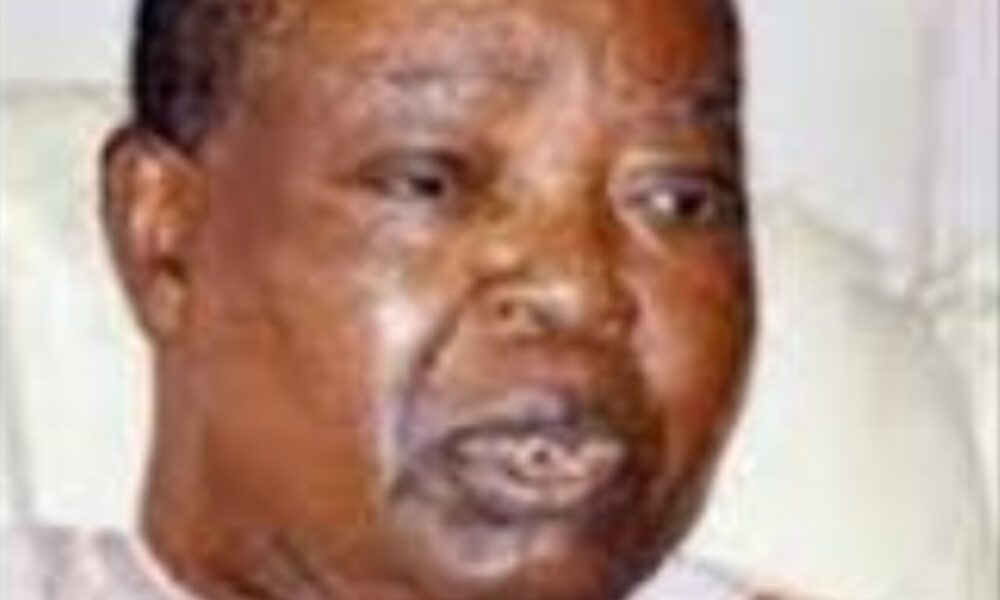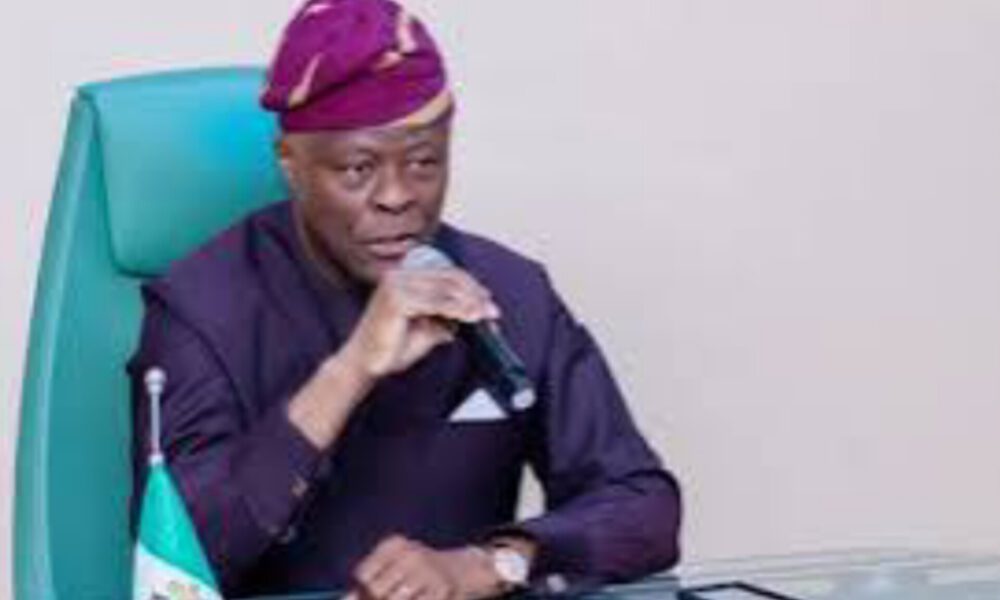The Nigerian Senate on Thursday held a valedictory session in honor of the late former President of the Senate, Senator Joseph Wayas, 36months after his passing.
The Senate at the session resolved to fully participate in his burial and send a condolence letter to his family, his constituency, and the Cross River State government.
Senator Wayas, who passed away on November 30, 2021, at the age of 80, served as the Senate President during Nigeria’s Second Republic, representing the Calabar Senatorial District.
The Upper Chamber observed a minute of silence in his memory and suspended other legislative items, including reports on the Medium-Term Expenditure Framework (MTEF) and the confirmation of the Chief of Army Staff, to focus solely on the tribute.
Moving the motion, Senate Leader Senator Opeyemi Bamidele (APC, Ekiti Central) praised Wayas as a distinguished statesman who left an indelible mark on Nigeria’s political landscape.
Bamidele recounted Wayas’ life journey, from his birth in Basang, Obudu, Cross River State, to his education in the United Kingdom, and his illustrious career in public service.

“Senator Wayas was a true believer in democracy, federalism, and good governance,” Bamidele stated, highlighting Wayas’ contributions as the Deputy Chairman of the 1994/1995 National Constitutional Conference Commission and his role as a founding member of the All People’s Party (APP) before joining the People’s Democratic Party (PDP) in 2001.
Several senators paid glowing tributes to Wayas, describing him as a patriot and committed leader.
They praised his leadership during the Second Republic, noting his efforts in promoting federalism and democratic values. Senator Bamidele recalled Wayas’ leadership in the National Party of Nigeria (NPN) and his role in the peaceful transition of power during the military coup in 1983.
The Senate noted Wayas’ exile and eventual return to Nigeria, where he continued to play significant roles in shaping the nation’s democratic trajectory, including his advocacy for constitutional reforms and support for Goodluck Jonathan’s rise to acting president during President Umaru Yar’Adua’s illness.
Described as a “perfect gentleman” and a “grassroots politician,” Wayas’ commitment to democracy, governance, and national unity was emphasized throughout the session. Senators acknowledged his tireless dedication to Nigeria, with Senate President Godswill Akpabio remarking, “His footprints are indelible in the sands of time.”
The valedictory session served as a solemn reminder of Senator Wayas’ immense contributions to Nigeria’s democracy and governance, with the Senate affirming its commitment to honor his legacy by fully participating in his final rites.
In his motion titled, “Demise of Senator Joseph Wayas (2. M. 1943 3 November, 2021), the Senate Leader, Senator Opeyemi Bamidele, APC, Ekiti Central said, “The Senate: Notes with shock the demise of His Excellency, Senator Joseph Wayas, former Senate President of Nigeria in the Second Republic who died on Tuesday, 30 November, 2021 at the age of 80;
“Notes that Senator Joseph Wayas was born in Basang, Obudu, Cross-River State on 21 May 1941 and attended Dennis Memorial Grammar School, Onitsha. He went to the United Kingdom where he studied at the Higher Tottenham Technical College, London, the West Bronwich College of Commerce, Science and Technology, Birmingham and Aston University. Returning to Nigeria, he worked as a manager or controller from 1960-1969 for several companies in Nigeria and the United Kingdom;
“Observes that he was a member of the Society of International Affairs at the Lincoln University, United States;
“Observes also that he joined the Federal Government in 1969-72. He was commissioner for Transport, South-Eastern State, now Akwa Ibom and Cross River states from 1972-74;
“Aware that with the transition to civil rule in 1979, Senator Joseph Wayas was elected to the Senate on the National Party of Nigeria (NPN) platform and appointed Senate President. He represented the Ogoja Senatorial District alongside Senator Joseph Oqua Ansa who represented Calabar Senatorial District;
“Recalls that in the lead-up to the 1983 elections, Wayas was the leader of the NPN party’s “Lagos Group” that supported a change of government in Cross River State, in opposition to the “Home Front” led by the incumbent governor, Clement Isong. Senator Wayas left office along with other members of the Shagari administration following a coup on New Year’s Eve 1983, and went into exile. He returned in 1987 and was held in political detention, 1987-1988;
“Aware that Senator Wayas was the Deputy Chairman of the 1994/1995 National Constitutional Conference Commission that organized and midwifed the National Conference itself;
“Aware also that Wayas was a founding member of the All People’s Party. He later joined the People’s Democratic Party in 2001. He was a strong believer in true Federalism as the only solution to the ongoing local council reforms by the Federal Government, describing them as ” in the Nigerian Civil War. In unconstitutional”
“Further aware that Senator Wayas was appointed Chairman of the Board of Trustees of the South- South Peoples Assembly (SSPA). In January 2009, he described post-election petitions to electoral tribunals as senseless, reckless and time wasting; In January 2010, Wayas advocated that Vice President Goodluck Jonathan be authorized to act as President pending the return of President Umaru Yar’Adua, who had been incapacitated by illness for some time;
“Convinced that he was an eminent and committed leader, a perfect gentleman, grassroots politician parement and comitationalist. His contributions to democracy and good governanterremand unparalleled and will make his foot prints indelible in the sands of time; and
“Regrets that his demise is a great loss to his family, the people of Cross-River North and the Government of Cross-River State.”



